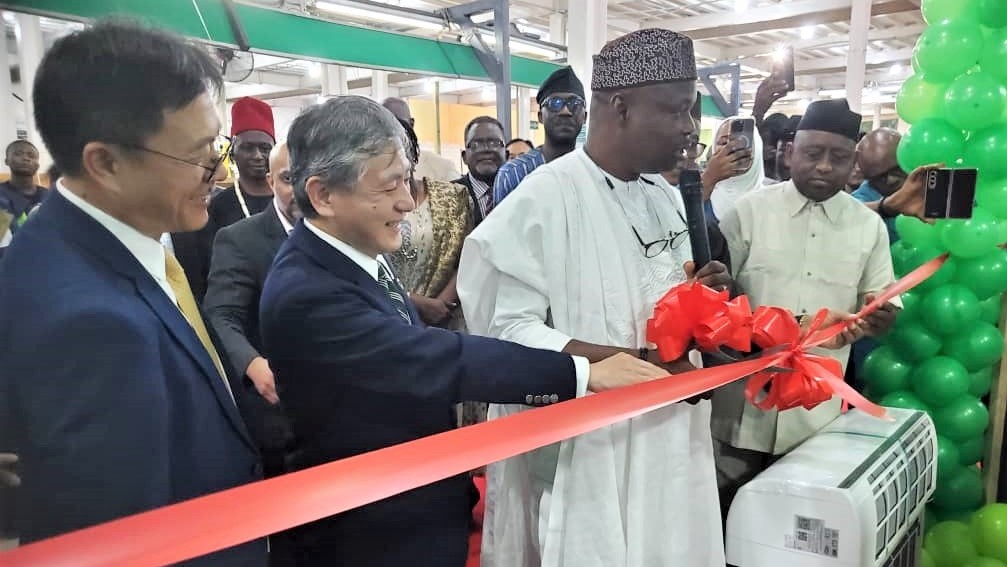UNIDO supports climate-friendly transition of Nigeria’s manufacturing sector
20 May 2024

Lagos, 4 April 2024 - UNIDO, jointly with the Federal Ministry of Environment and Sacral Industries, organized a commissioning event for the launch of a new production line at the facility. Sacral Industries is an early adopter of the conversion technology to manufacture air-conditioning (AC) equipment using R-32, a low global warming potential (GWP) coolant in the Nigerian market.
Speaking at the event, Ciyong Zou, UNIDO’s Deputy to the Director General and Managing Director said, “This event marks the timely beginning of the third stage of UNIDO’s Hydrochloroflourocarbon Phase-Out Management Plan (HPMP) in the country.” The HPMP, which is funded by the Multilateral Fund, seeks to reduce the consumption of ozone-depleting substances (ODS) in distinct, time-bound phases, where the Phase 3 seeks a 70% reduction of ODS consumption with respect to a 2010 baseline. This reflects the ongoing success of UNIDO’s 30 years of support to Nigeria in its efforts to promote climate friendly manufacturing, Zou added.
Nigeria is the largest market for cooling equipment in Africa, accounting for 20% of the total annual sales of mini-split ACs for Africa and Middle Eastern countries. Refrigeration and air-conditioning appliances account for about 40% of the electricity used in residential houses, which is expected to escalate in the coming decades as the economy grows. This high demand is related to the hot and arid climate of the country. Studies have shown the relationship between cooling offices and schools and increased productivity, underlying the need for effective AC. According to the Nigeria Cooling Action Plan, the demand for AC units will reach 71 million by 2050 — translated into 10 million units every year.
Transitioning to eco-friendly AC manufacturing yields significant climate benefits, given most ACs are inefficient and utilize high GWP refrigerants. There is a great need for better practices in this sector. Iziaq Adekunle Salako, Nigeria’s Minister of State for Environment, said that the country is committed to creating an enabling environment for the manufacturing sector to ensure it progresses on the green pathway by adopting climate-friendly practices such as low GWP conversion.
With the financial support given by the Multilateral Fund for the implementation of the Montreal Protocol, this successful conversion at Sacral Industries is expected to reduce around 27 thousand tons of CO2 equivalent emissions per year. More companies will be supported by UNIDO in the coming years. This will contribute to achieving the country’s climate targets while promoting sustainable industrial development in Nigeria.
Further information:
Industrial Development Officer